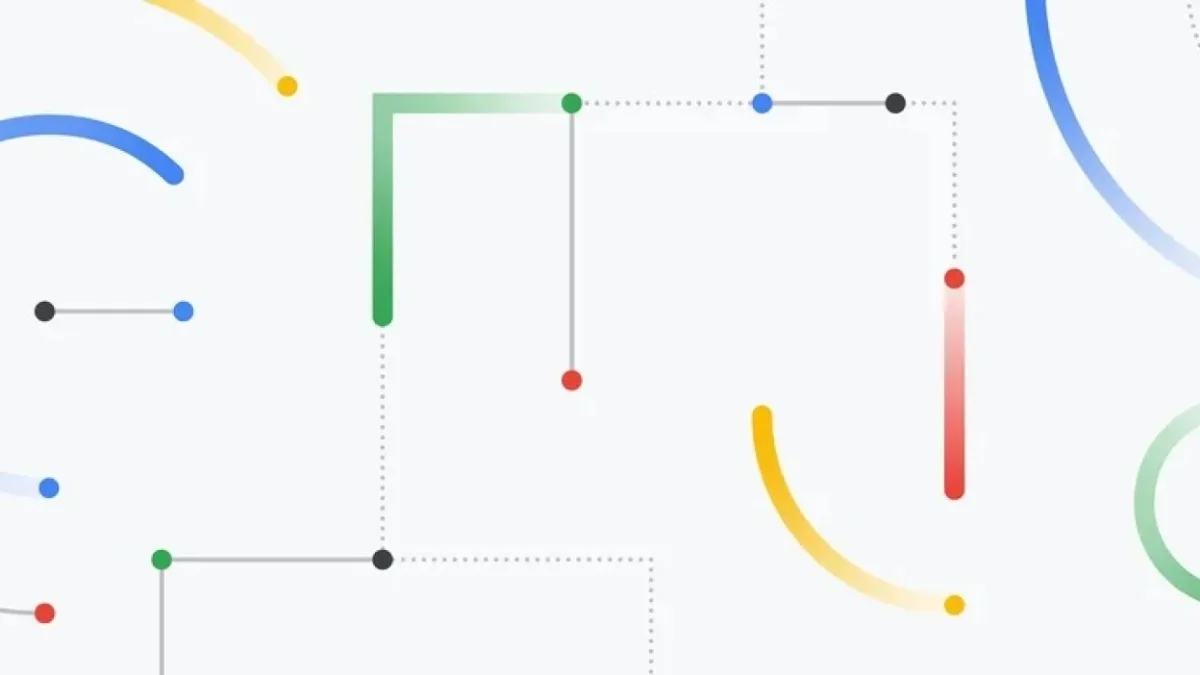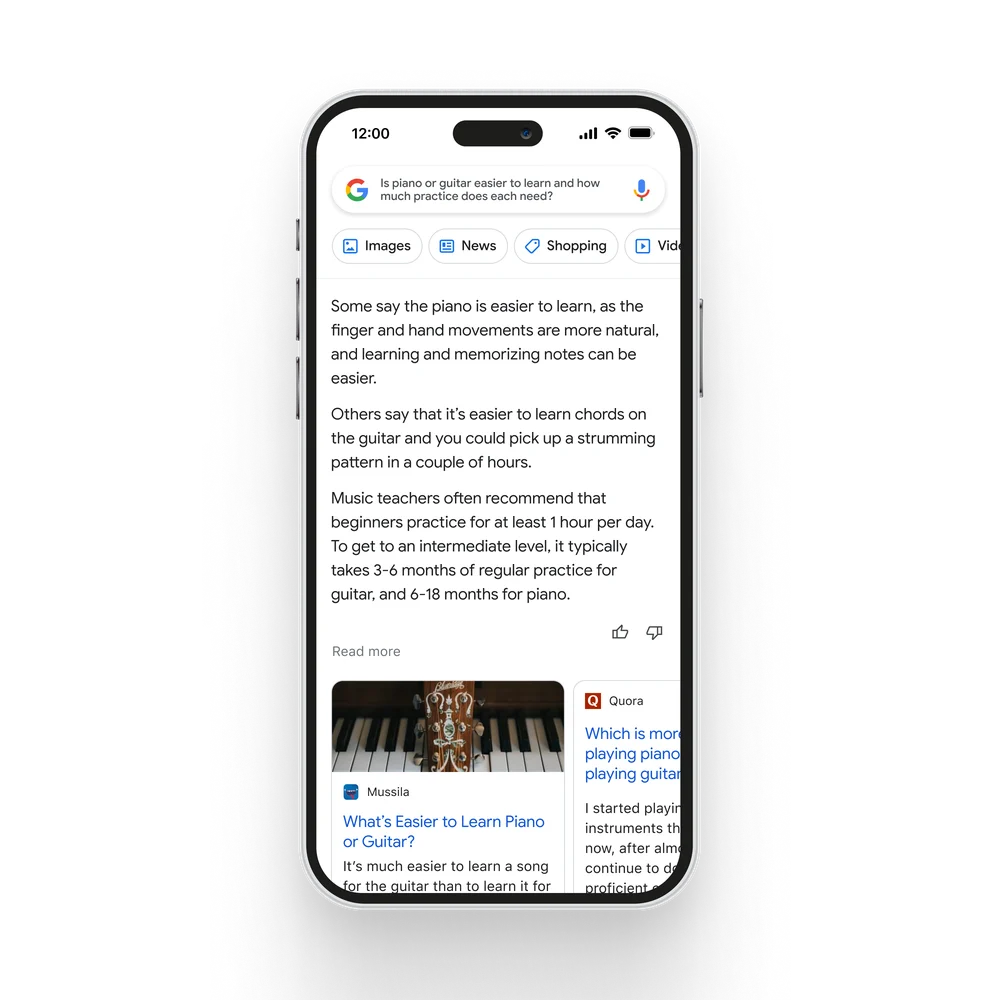H Google μόλις ανακοίνωσε το Bard. Είναι μια επανάσταση αφού πρόκειται για μια conversational AI υπηρεσία που έχει στόχο να παρέχει ‘fresh, high-quality responses’ σε ερωτήσεις μέσα από…
…την πληροφορία που συλλέγεται από το web. Ναι, είναι ο αντίπαλος του ChatGPT αλλά η Google θέλει να τονίσει πως είναι συστήματα που έχει σε ανάπτυξη εδώ και χρόνια. Το chatbot της εταιρίας όπως ανακοίνωσε ο Google CEO Sundar Pichai είναι αρχικά διαθέσιμο σε “trusted testers” και θα είναι ευρύτερα διαθέσιμο “in the coming weeks.”
Μετά από το λανσάρισμα του OpenAI ChatGPT τον Δεκέμβρη του 2022, η δημοφιλία της generative AI τεχνολογίας οδήγησε τα στελέχη της Google executives να δηλώσουν πως έχουν μπει σε συναγερμό “code red” και να τρέξουν με τις AI τεχνολογίες τους.
Όπως και το ChatGPT, το Bard θα λειτουργεί με πληροφορίες από το web για να “provide fresh, high-quality responses.” Το Bard θα παίρνει την ισχύ του από μια “ελαφριά” έκδοση της LaMDA, της AI language model τεχνολογίας.
Όλα αλλάζουν;
Αναλυτικά η εταιρία έγραψε:
Introducing Bard
It’s a really exciting time to be working on these technologies as we translate deep research and breakthroughs into products that truly help people. That’s the journey we’ve been on with large language models. Two years ago we unveiled next-generation language and conversation capabilities powered by our Language Model for Dialogue Applications (or LaMDA for short).
We’ve been working on an experimental conversational AI service, powered by LaMDA, that we’re calling Bard. And today, we’re taking another step forward by opening it up to trusted testers ahead of making it more widely available to the public in the coming weeks.
Bard seeks to combine the breadth of the world’s knowledge with the power, intelligence and creativity of our large language models. It draws on information from the web to provide fresh, high-quality responses. Bard can be an outlet for creativity, and a launchpad for curiosity, helping you to explain new discoveries from NASA’s James Webb Space Telescope to a 9-year-old, or learn more about the best strikers in football right now, and then get drills to build your skills.
Use Bard to simplify complex topics, like explaining new discoveries from NASA’s James Webb Space Telescope to a 9-year-old.
We’re releasing it initially with our lightweight model version of LaMDA. This much smaller model requires significantly less computing power, enabling us to scale to more users, allowing for more feedback. We’ll combine external feedback with our own internal testing to make sure Bard’s responses meet a high bar for quality, safety and groundedness in real-world information. We’re excited for this phase of testing to help us continue to learn and improve Bard’s quality and speed.
Bringing the benefits of AI into our everyday products
We have a long history of using AI to improve Search for billions of people. BERT, one of our first Transformer models, was revolutionary in understanding the intricacies of human language. Two years ago, we introduced MUM, which is 1,000 times more powerful than BERT and has next-level and multi-lingual understanding of information which can pick out key moments in videos and provide critical information, including crisis support, in more languages.
Now, our newest AI technologies — like LaMDA, PaLM, Imagen and MusicLM — are building on this, creating entirely new ways to engage with information, from language and images to video and audio. We’re working to bring these latest AI advancements into our products, starting with Search.
One of the most exciting opportunities is how AI can deepen our understanding of information and turn it into useful knowledge more efficiently — making it easier for people to get to the heart of what they’re looking for and get things done. When people think of Google, they often think of turning to us for quick factual answers, like “how many keys does a piano have?” But increasingly, people are turning to Google for deeper insights and understanding — like, “is the piano or guitar easier to learn, and how much practice does each need?” Learning about a topic like this can take a lot of effort to figure out what you really need to know, and people often want to explore a diverse range of opinions or perspectives.
AI can be helpful in these moments, synthesizing insights for questions where there’s no one right answer. Soon, you’ll see AI-powered features in Search that distill complex information and multiple perspectives into easy-to-digest formats, so you can quickly understand the big picture and learn more from the web: whether that’s seeking out additional perspectives, like blogs from people who play both piano and guitar, or going deeper on a related topic, like steps to get started as a beginner. These new AI features will begin rolling out on Google Search soon.
Helping developers innovate with AI
Beyond our own products, we think it’s important to make it easy, safe and scalable for others to benefit from these advances by building on top of our best models. Next month, we’ll start onboarding individual developers, creators and enterprises so they can try our Generative Language API, initially powered by LaMDA with a range of models to follow. Over time, we intend to create a suite of tools and APIs that will make it easy for others to build more innovative applications with AI. Having the necessary compute power to build reliable and trustworthy AI systems is also crucial to startups, and we are excited to help scale these efforts through our Google Cloud partnerships with Cohere, C3.ai and Anthropic, which was just announced last week. Stay tuned for more developer details soon.
Bold and responsible
It’s critical that we bring experiences rooted in these models to the world in a bold and responsible way. That’s why we’re committed to developing AI responsibly: In 2018, Google was one of the first companies to publish a set of AI Principles. We continue to provide education and resources for our researchers, partner with governments and external organizations to develop standards and best practices, and work with communities and experts to make AI safe and useful.
Whether it’s applying AI to radically transform our own products or making these powerful tools available to others, we’ll continue to be bold with innovation and responsible in our approach. And it’s just the beginning — more to come in all of these areas in the weeks and months ahead.
Related posts
Categories
- android World
- cinemart / music / video
- comicmania / books
- computing / social media
- consumer electronics
- design / architecture
- ecotech / electric
- exhibitions
- faq / Infographics
- futuristas / iDea
- gadgetfreak taste
- gadgets / stuff
- gaming / fun
- iOS World
- legends / special
- men's world
- military / aviation
- mobile / smartphones
- space talk
- tablets / multimedia
- tech talk / science
- transport / concept




